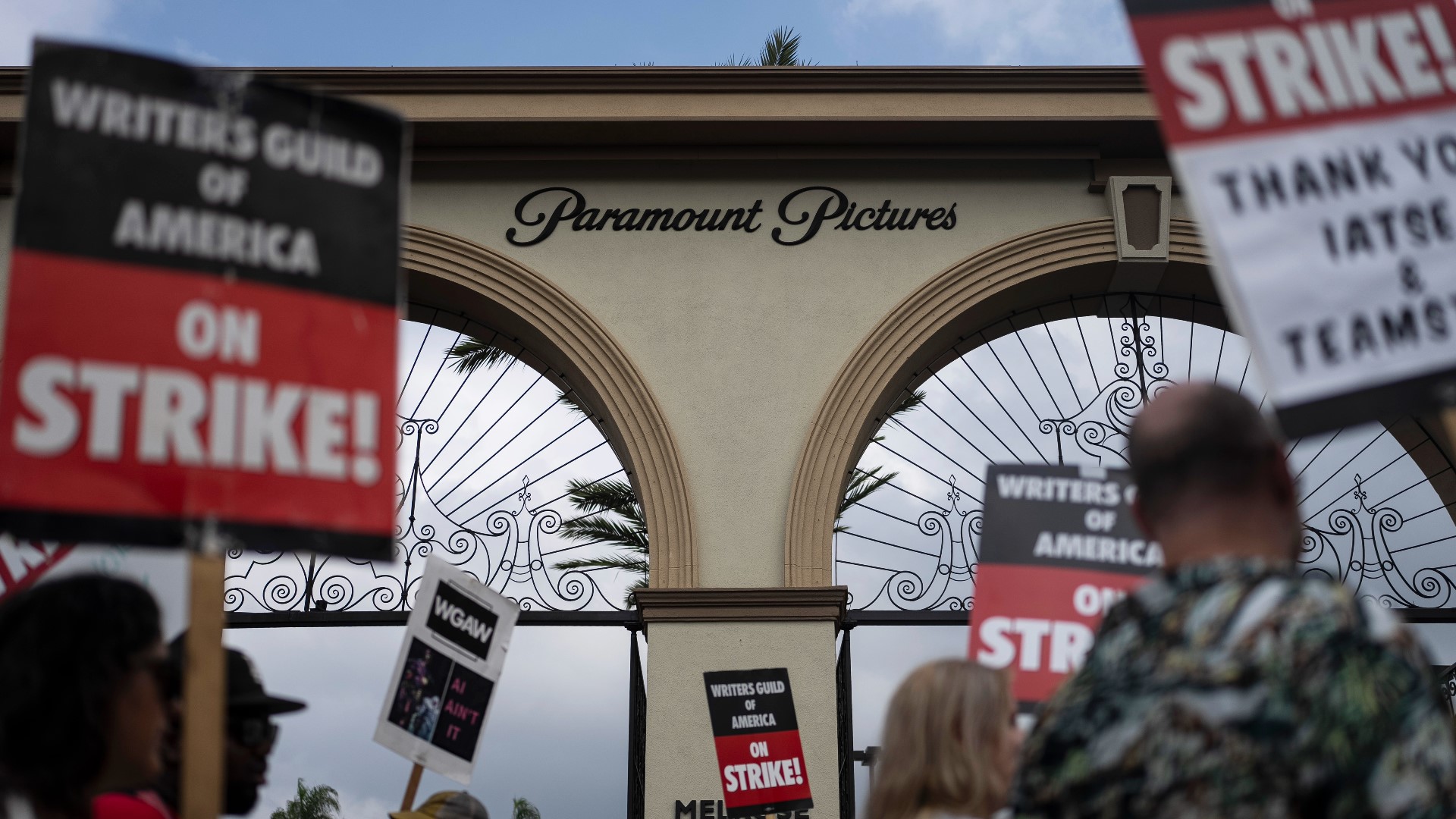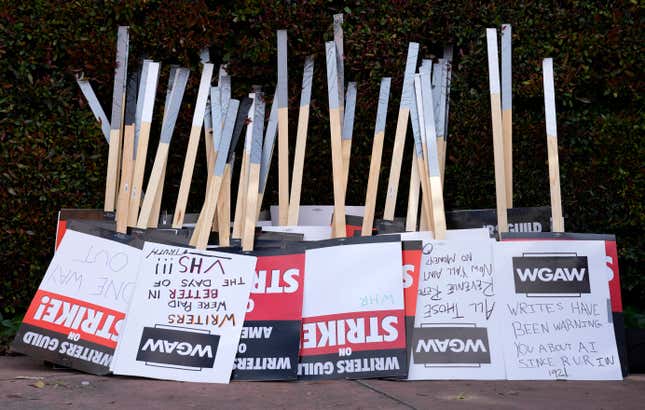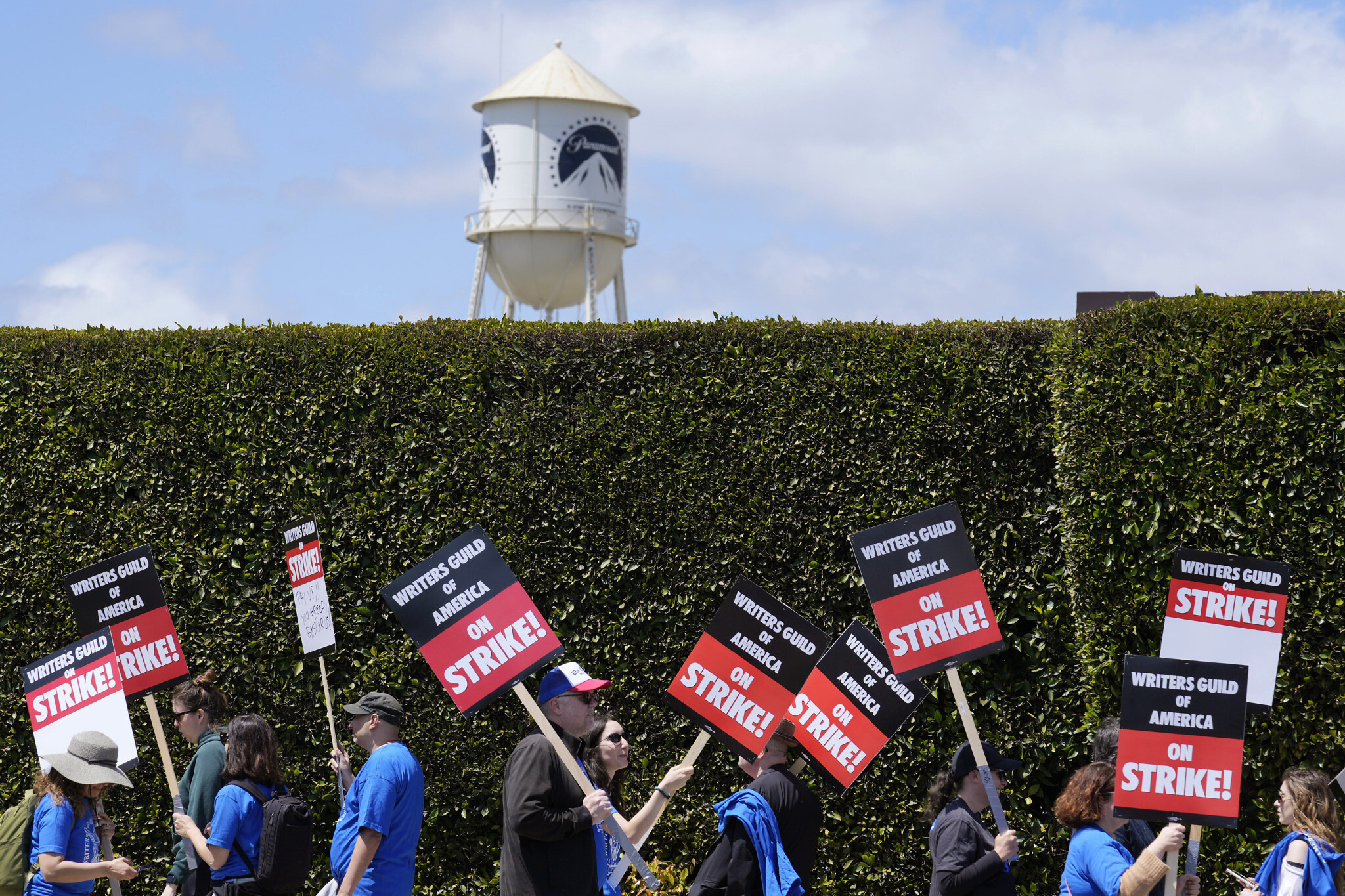Historic Strike Ends as Writers and Hollywood Studios Reach Tentative Agreement

Historic Strike Ends as Writers and Hollywood Studios Reach Tentative Agreement
In a long-anticipated turn of events, the screenwriters’ strike that has gripped Hollywood for nearly five months appears to be drawing to a close. The Writers Guild of America (WGA) and the Alliance of Motion Picture and Television Producers (AMPTP), the representative body for studios, streaming platforms, and production companies, have announced a tentative agreement that holds the promise of ending the historic strike. While this development brings hope and relief to the industry, it’s important to note that no deal has yet been struck for the striking actors, leaving their situation uncertain.
The End of an Era
The strike, which began amidst fervent demands for better pay, improved working conditions, and fair compensation for writers in the evolving landscape of entertainment, marked a significant chapter in the annals of Hollywood’s labor history. The Writers Guild of America, representing the interests of thousands of screenwriters, had initiated this industrial action as a demonstration of their unwavering resolve.
The Tentative Agreement
Details of the tentative agreement, which have been eagerly awaited by industry insiders and fans alike, are yet to be fully disclosed. However, it is understood that the deal addresses several of the key concerns raised by the striking writers. Central to the agreement are provisions aimed at enhancing the financial well-being of writers, who have long grappled with concerns of income inequality in the industry.
One of the notable aspects of the agreement is the emphasis on fair compensation in the era of streaming services. As digital platforms have grown to become major players in the entertainment landscape, writers had called for a more equitable share of the revenues generated by their work on these platforms. The tentative agreement is said to include provisions that reflect this demand, potentially ensuring that writers receive their due in the digital age.
Additionally, the deal is expected to address concerns about long working hours and provide improved working conditions for writers across the industry. This comes as a welcome development, as screenwriters have often been required to endure grueling schedules and demanding work environments.

A Unified Front?
While this tentative agreement marks a significant step towards ending the strike and resolving the grievances of writers, it’s crucial to highlight that the situation for actors remains uncertain. Unlike the writers, who have taken strides towards a resolution, the actors involved in the strike have yet to reach an accord with the studios and producers.
The divergence in progress between writers and actors underscores the complexities of labor negotiations within the entertainment industry. While both groups share a commitment to improving their working conditions and securing fair compensation, the nuances of their demands and negotiations have led to varying outcomes.
Impact on the Entertainment Landscape
The effects of the strike have reverberated throughout the entertainment ecosystem. Production schedules were disrupted, leading to delays in the release of highly anticipated films and TV series. Audiences, accustomed to a steady stream of content, were left waiting for new releases as the strike halted numerous projects.
Moreover, the strike highlighted the shifting dynamics of the entertainment industry. Streaming platforms, which have experienced exponential growth in recent years, found themselves under scrutiny as writers called for a more substantial share of the profits generated by their work on these digital platforms. This tentative agreement, with its implications for compensation in the digital era, may set a precedent for future labor negotiations in the industry.

What Lies Ahead
As the entertainment world watches with bated breath, the resolution of the writers’ strike is seen as a beacon of hope for those involved in the industry. It illustrates the potential for dialogue and compromise even in the face of protracted disputes. However, the situation for striking actors remains unresolved, leaving a lingering question mark over Hollywood’s labor landscape.
In the coming days, the industry will closely monitor developments regarding the actors’ strike, hoping for a resolution that mirrors the progress made by the writers. The outcome of these labor negotiations will not only impact the livelihoods of those within the entertainment sphere but also shape the future of an industry in a state of constant evolution.
As Hollywood inches closer to resolving one of its most significant labor disputes in recent history, the tentative agreement between writers and studios stands as a testament to the power of collective bargaining and the pursuit of fairness in the world of entertainment. While the final details of the agreement are yet to be unveiled, the potential end to this historic strike carries the promise of a more equitable future for those whose creative talents continue to captivate audiences worldwide.
In the wake of this tentative agreement, industry experts and analysts are speculating about the broader ramifications it may have on the entertainment landscape. The strike has already exposed the vulnerabilities within the industry’s labor structure, prompting discussions about the need for greater transparency, equity, and inclusivity. It is expected that the lessons learned from this labor dispute will shape the way future negotiations are conducted, with a focus on addressing systemic issues that affect not only writers and actors but also crew members, from directors to costume designers.
One of the noteworthy aspects of this strike’s resolution is the unity demonstrated by the Writers Guild of America. The ability of thousands of screenwriters to stand together and advocate for their rights sends a powerful message about the importance of solidarity in achieving change. It underscores the significance of unions in protecting the interests of workers within the entertainment industry, where the gig economy and short-term contracts have become increasingly prevalent.

As Hollywood takes steps toward resolving this protracted dispute, it faces the challenge of rebuilding trust and maintaining a harmonious working relationship between writers, actors, and studios. The tentative agreement may serve as a stepping stone for broader conversations about the future of entertainment, particularly in an era defined by rapid technological advancements and shifting audience preferences. The industry will need to adapt and evolve to remain relevant, and the outcome of these labor negotiations will undoubtedly shape that evolution.
In conclusion, the tentative agreement between writers and Hollywood studios to end the historic strike represents a significant turning point in the entertainment industry. While the specific details are yet to be unveiled, the agreement offers hope for better compensation, improved working conditions, and a more equitable distribution of profits, particularly in the realm of streaming services. As the industry grapples with ongoing challenges, including the unresolved actors’ strike, it is clear that these negotiations have broader implications that extend beyond the immediate interests of those involved, impacting the future of entertainment for years to come.




